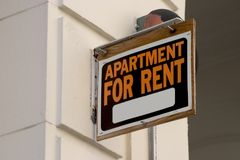An important piece of advice that foreign citizens should always take into account before proceeding to purchase a property in Spain, is to seek the advice of a bilingual independent lawyer, specialised in Conveyancing in the region in question.
As we always advise our clients, “NEVER to sign any reservation document or contract, or to make any payment whatsoever in concept of a deposit or part payment of the transaction, without the previous supervision and approval of your lawyer.”

Surprisingly, the use of legal services when purchasing property is not common in Spain. Lawyers tend not to act preventively prior to purchase by supervising the transaction, instead their work tends to be posterior, to resolve legal problems in court that arise from the absence of an expert Conveyancing service previous to purchase.
Unlike the English legal system where there is a protocol for the Conveyancing process (The Law Society Conveyancing Protocol), in Spain this tradition does not exist. Therefore, there are no legal, regulatory or urban requirements for real estate transactions. For that reason, problems may arise subsequent to purchase, that could have easily been avoided by using an independent expert Conveyancing service like MSG LEGAL can provide for you.
Fees, expenses and taxes for the purchase of a property in Spain.
One of the most important issues for the buying party to consider when planning to purchase a property in Spain, is to foresee the costs they will face in addition to the applicable taxes on the transaction. In this article we will clarify the costs involved, the parties liable for payment, and to whom and when payment should be made.
Purchase/sale fees
Real Estate Agency. The real estate agency fees should be settled by the party that contracts their services, usually the selling party, and payment should be made when the sale takes place. The amount is not regulated by law, but in practice it tends to vary between 3% and 5% of the total value of the sale price.
Notary. The Notary fees are established by Law and can vary between 0.5% and 1% of the sale price specified in the public deeds.
Land Registry. Land registry fees, like Notary fees, are regulated by Law and vary according to the value of the property. The buying party is responsible for payment.
Solicitor. The expenses corresponding to contracting a solicitor for Conveyencing services are calculated by applying a percentage on the final purchase price (between 1% and 1.5%) . As always we recommend that when contracting a solicitor for your purchasing process, you choose one from the area where the property is located, specialised in Property Law and duly registered and recognised by the Illustrious Bar Association.
Mortgage Expenses. the expenses involved in obtaining a mortgage correspond to the valuation of the property, and those that the financial entity establishes as implicit to setting up the mortgage
Taxes derived from the purchase of a property.
The buying party is liable for payment, and the taxes involved depend on the type of property in question.
If it is the first transfer of ownership (a new-build property) the transaction will be subject to Value Added Tax (VAT). In the case of a dwelling the tax rate will be 10% of the total purchase price. It will also be necessary to pay Transfer Stamp Duty, which will also be a percentage of the asset value, this varies depending on the region in which the property is located. In the Costa Blanca (Region of Valencia) the general taxation rate is 1.5% (0.1% if the property will be the main residence of the buyer).
If the property is second hand, the transaction will be subject Property Transfer and Certified Legal Documents Tax (TPO y AJD) and similarly the tax rate will be a percentage of the asset value, this also varies depending on the region in which the property is located. In the Costa Blanca (Region of Valencia) the general taxation rate is 10%.
Taxes and expenses derived from Property Ownership
Associations of property owners. For properties under the Horizontal or Condominium Property Regime (those situated in residential buildings or urbanisations).
Local Property Tax (IBI). This is an annual Council Tax. It is calculated based on the cadastral value (not the sale price of the property).
Rates for the Collection and Disposal of Household Waste. This is a Council Tax corresponding to the district in which the property is located.
Non-Resident Income Tax (IRNR). Non-resident property owners in Spain shall be liable for Non-Resident Income Tax (IRNR).
At MSG LEGAL, as an expert Property Law firm, in the scope of our conveyancing service we offer a comprehensive advisory service throughout the purchase of both new build and second hand properties. We will protect your interests from the very beginning of the negotiations right through to the finalisation of the purchase process, to protect you (among other aspects) from any unfair or ‘abusive’ clauses that the property acquisition contract may contain.
Please note the information provided in this article is of general interest only and is not to be construed or intended as substitute for professional legal advice.








